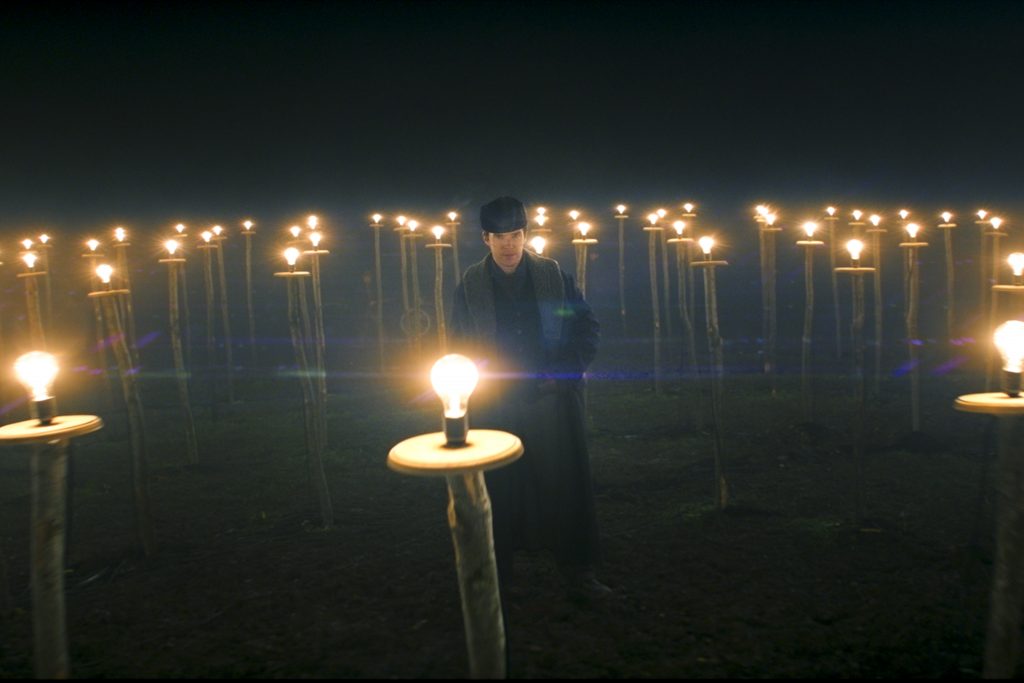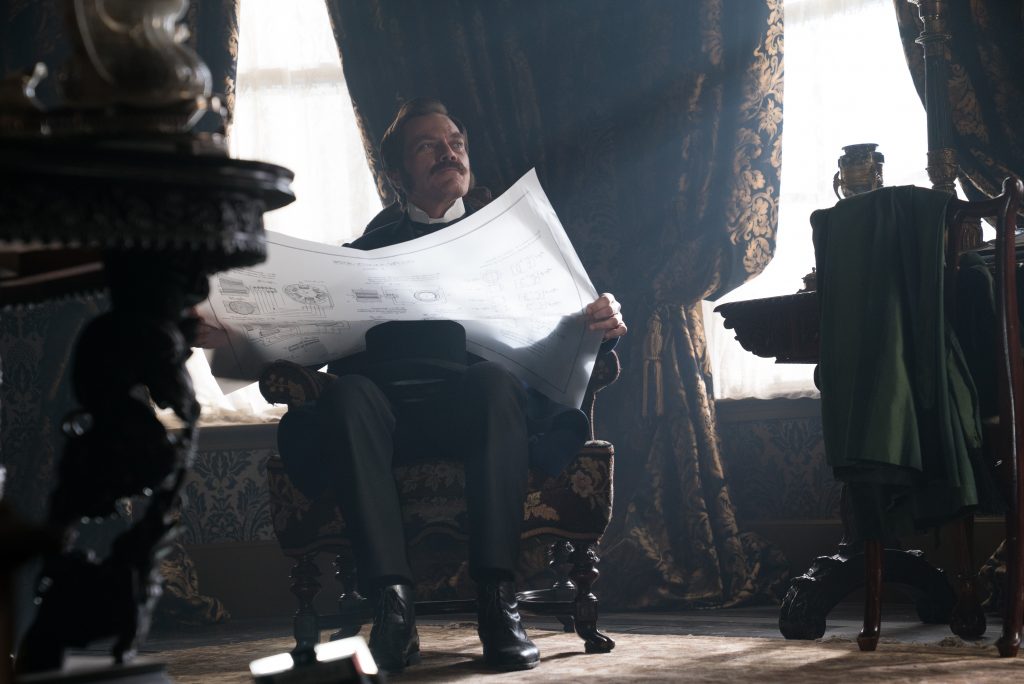By Paige Colley
BU News Service
“The Current War: Director’s Cut” is at its best when not at war with history, and it has a lot of history to war with.
It’s a miracle the film exists in the first place. Beyond attempting to condense 11 years of history into 107 minutes, the movie was an unexpected victim of the Weinstein scandal. After debuting at the 2017 Toronto International Film Festival, the allegations of sexual abuse towards movie producer Harvey Weinstein, whose production company had financed the film, resulted in the production falling into limbo, until it was bought by 101 Studios and edited into the director’s cut.
Sadly, the history of the movie is more interesting than the movie itself.
Directed by Alfonso Gomez-Rejon (“Me, Earl, and the Dying Girl”), the movie, inspired by true events, begins with Thomas Edison (Benedict Cumberbatch) demonstrating his newly invented light bulb to potential investors. After his success, Edison breaks plans to meet with George Westinghouse (Michael Shannon) and his wife, Marguerite (Katherine Waterston). Snubbed by the cancellation, the couple resolves to put him out of business by forming their own electricity company.

Edison is a firm champion for direct current (DC), where electricity flows in only one direction. In contrast, Westinghouse proposes the use of alternating current (AC), where the direction of the flow changes many times over the course of a second. Aware that a shock from an alternating current is more likely to be lethal, Edison begins a campaign to spread awareness of its dangers, going so far as to perform tests on animals and eventually becoming involved with the creation of the electric chair.
The plot revolves around a continual shifting of alliances as both companies attempt to prove their dominance, culminating in trying to win a bid to provide electricity for the Chicago World Fair. One of those alliances includes Nikola Tesla (Nicholas Hoult), who joins Westinghouse.
On Edison’s side is J.P. Morgan (Matthew Macfadyen) as his wealthy backer, and Samuel Insull (Tom Holland) as his loyal secretary. He also has the support of his wife, Mary (Tuppence Middleton) to act as his moral compass until her untimely passing early on in the film.
There’s a lot going on in this movie, and that’s its downfall. Any one of the lead characters could fill an entire movie by themselves.
Tesla, who has already been snubbed by history books, is again pushed to the side unless necessary for the development of the plot. Westinghouse gets little more than a few flashbacks to his time in the Civil War. And of course, neither female characters grow outside of their relationships with their husbands.

Edison, while technically considered the main character in the film, feels underdeveloped. His favorite line is that he never wants to harm a human being. It’s a line he has no trouble throwing out as soon as it becomes convenient to the story, leaving the audience no choice but to accept it as fact despite never being shown anything to indicate that he cares about people to begin with.
Edison blows off his wife and children to keep working and is prone to fits of rage when Westinghouse wins any scrimmage, but his propensity for invention and success means his transgressions are easily forgiven. The constant reminders of the value of human life feel shoe-horned in as a feeble attempt to give his character an out when he suddenly feels compelled to help develop the electric chair to create a more humane form of execution. The movie forgets that his campaign alleging that AC is lethal was more a jab at his competitor than a public health announcement.
This is not to say that the movie is without its redeeming qualities. The third act, finding an opportunity to take some creative liberties outside of historical reference, was filled with poignant and well-acted scenes. The actors finally had a chance to bring some charm to their respective characters. Holland especially brought his usual boyish charm to a role that required his character to grow and mature. Even Cumberbatch managed to bring some humanity to a character who, up until the end, failed to show more than what his lines delivered.

The cinematography was beautiful, even when it was heavy-handed in regards to symbolism. The sets helped to create a world of luxury cast in candlelight. The score was elegant, filled with the rich, natural sounds of violins. It possessed an organic quality, fitting of a time without electricity, and helped to bring crescendo to the climax.
Overall, the movie was a poor substitute for history but too accurate for cinema. While enjoyable to watch in the moment, the odds of it making a lasting impression are slim. Maybe five years from now movie-watchers will stumble across it on a streaming service, remember their love of Benedict Cumberbatch and will consider giving it another go. But only because “The Imitation Game” isn’t available.
“The Current War: Director’s Cut” is out in theaters Oct. 25.





